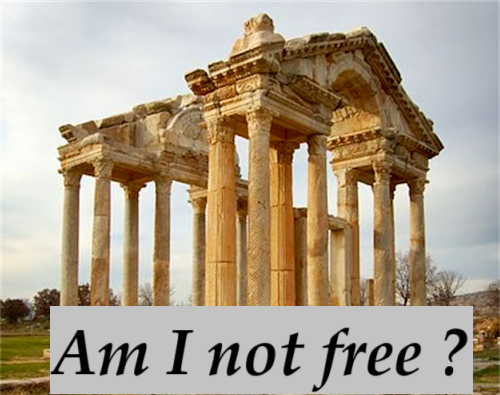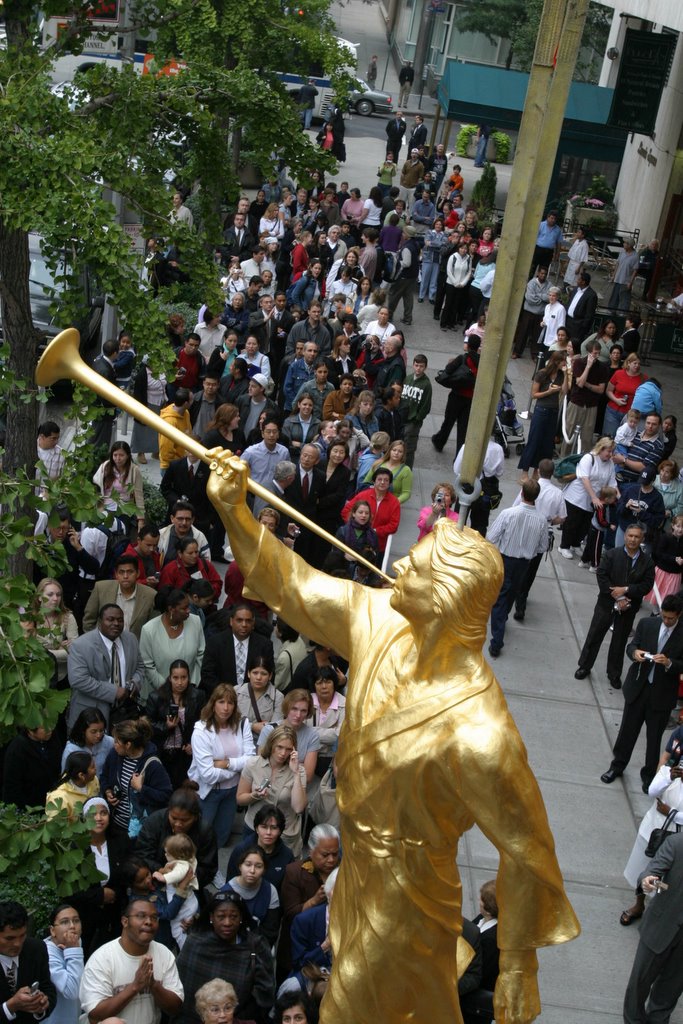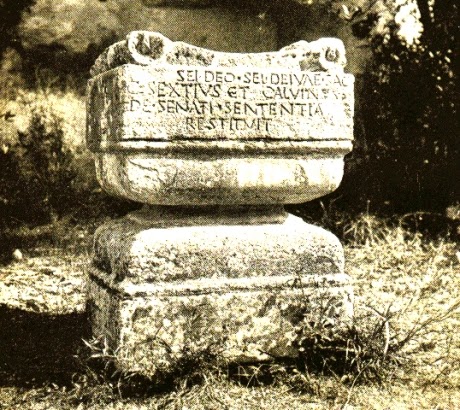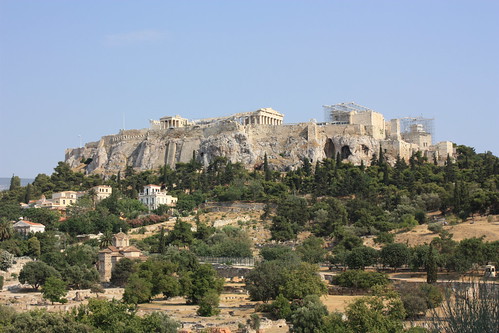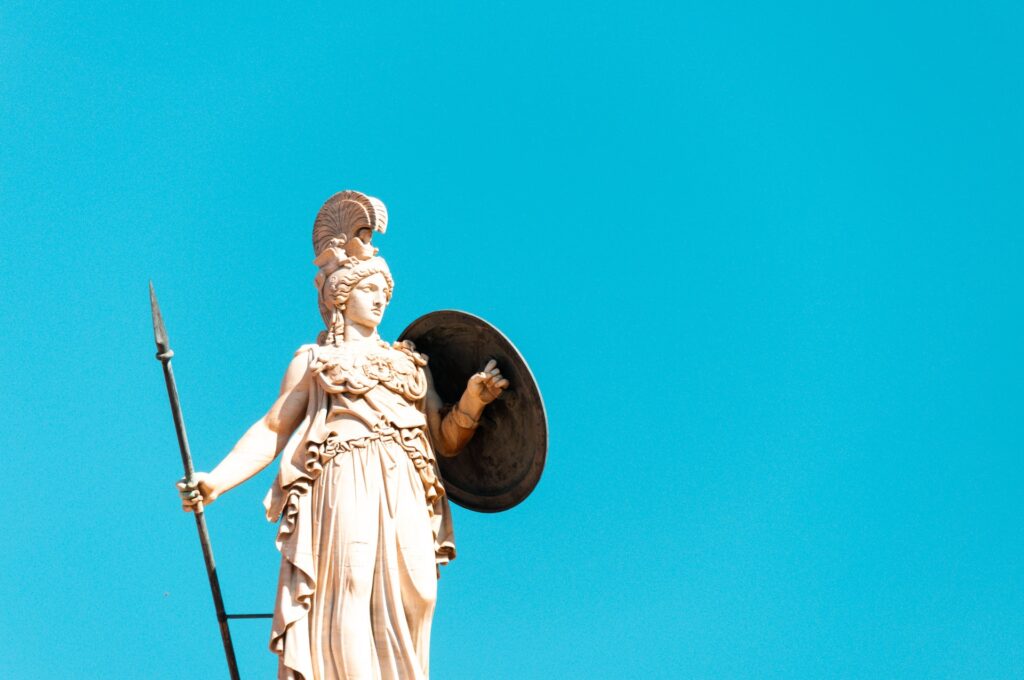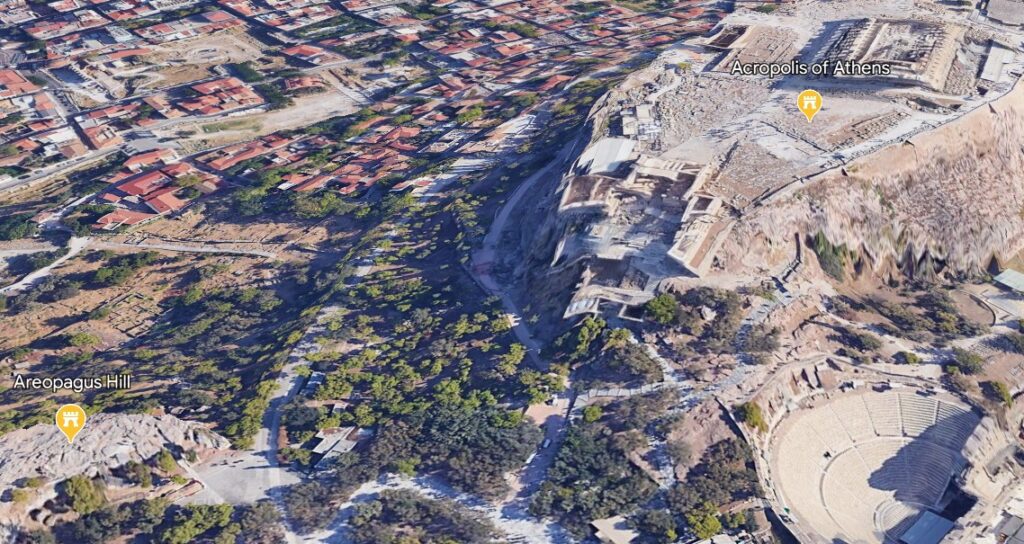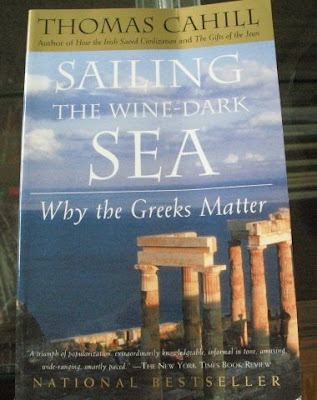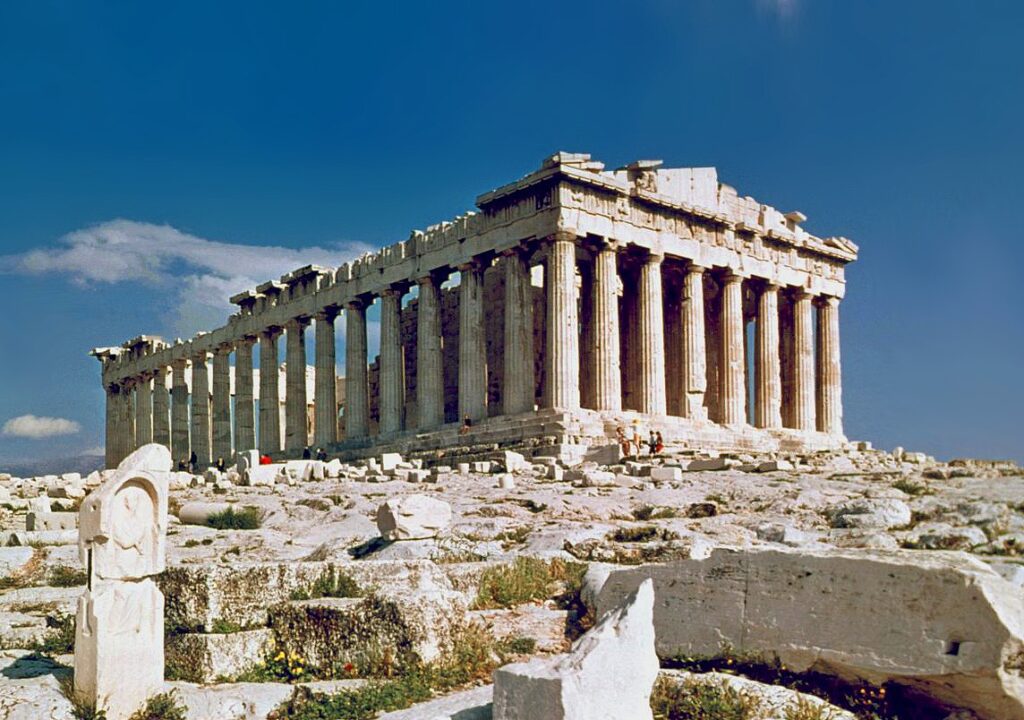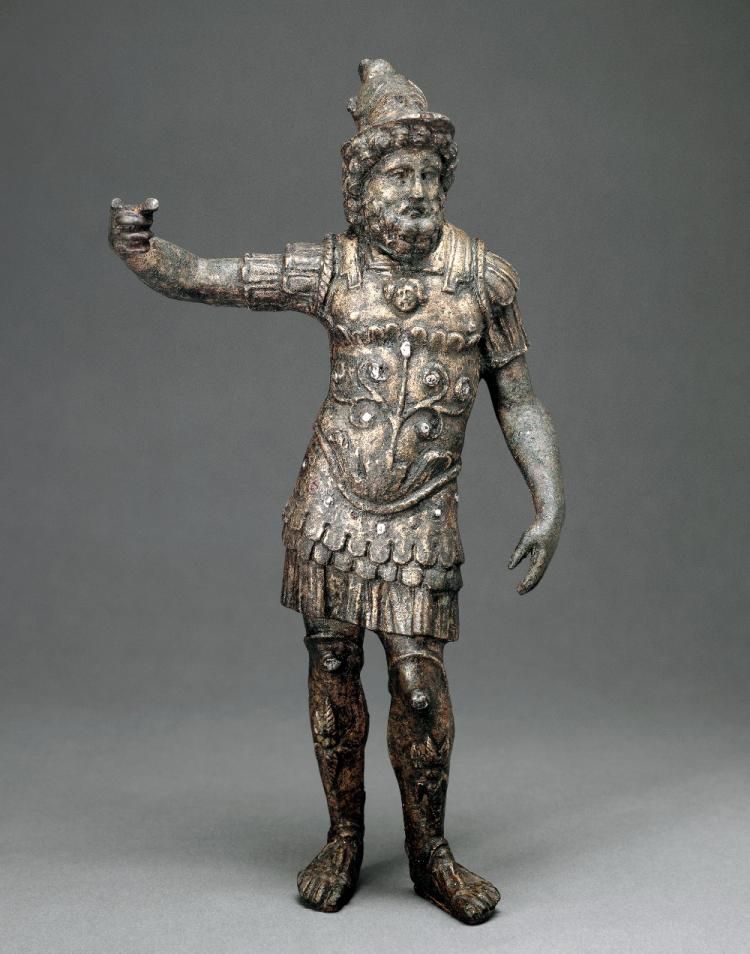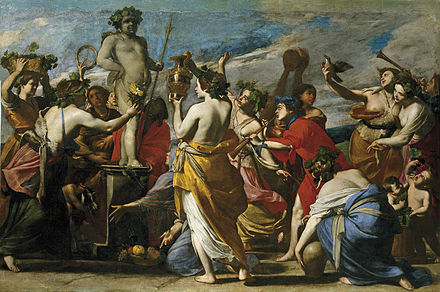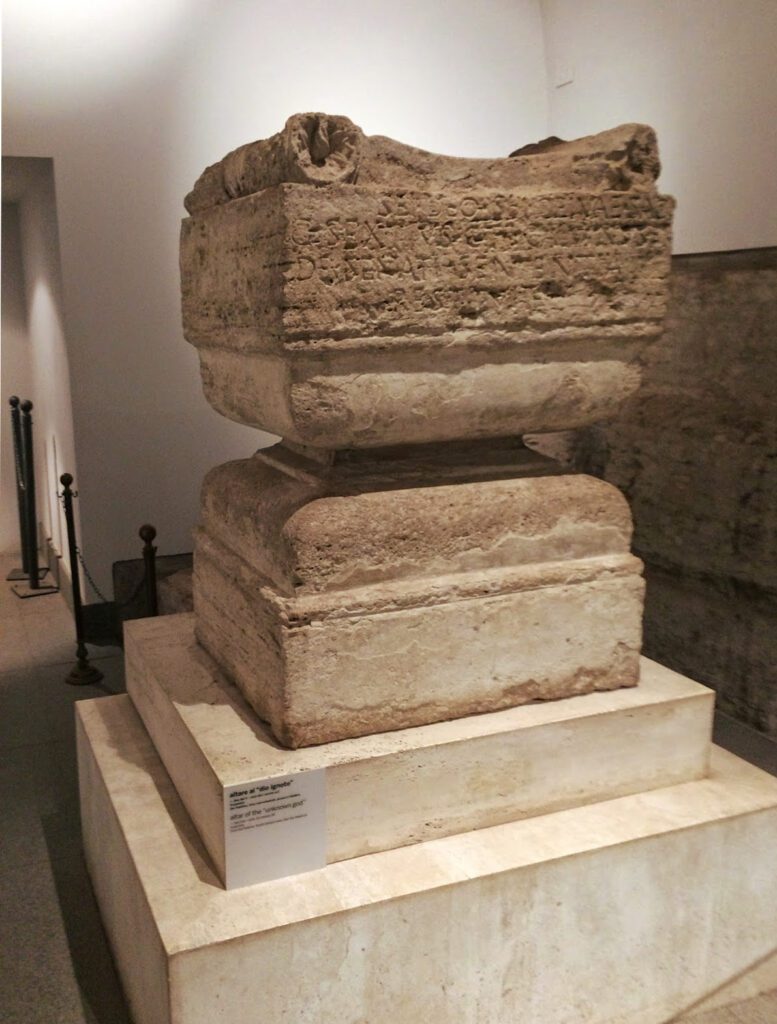Am I not free? Am I not an apostle? Have I not seen Jesus our Lord? Are you not my work in the Lord?
1 Corinthians 9:1 New Heart English Bible
Freedom and Religion
Eric Kress outlines two main points of application from the previous chapter of 1 Corinthians 8:
- a. The caution concerning your exercise of freedom (v.9-12)
- b. The care you must take when contemplating the use of your freedom (v.13)
Paul’s 4 questions intertwined in context and application
Paul’s four-fold point (in the Apostle’s letter without chapter and verse) begins:
οὐκ εἰμὶ ἐλεύθερος
‘Not am I free?’ literally begins the Greek text.
OR the King James begins:
οὐκ εἰμὶ ἐλεύθερος
‘Am I not an apostle?’
1 Corinthians 9:1 Bibles
We won’t want to miss that the Apostle’s pivotal questions follow his concern regarding the idolatry of Corinth and communion between the saints of the Corinthian church with the revelers of the city.
- Am I not free?
- Am I not an apostle?
- Have I not seen Jesus our Lord?
- Are you not the result of my work in the Lord?
Freedom of religion
A hypothetical case contemplating the use of our freedom:
Suppose for a moment that most every Sunday you go to some local church with an identifiable ‘christian‘ NAME like:
- such and such FREE church or
- Our evangelical denomination brand church
- City name Christian church
- Korinthian cathedral and parish?
Won’t most of the people who know you in town also know that:
- you claim to be a saint,
- part of you so-named christian church
- worshiping some god JESUS
- preached by some Apostle Paul
- AND in this church occasionally inviting YOU
- (of another sect celebrating other gods)
- to go gather in community with these worshipers of One JESUS Christ their Lord?
Therefore in Paul’s setting of Corinth around A.D. 55:
Shouldn’t these Corinthian christians come join our religious feasts and live the life of revelry and worship we do with our gods?
Why should they?
As we have learned previously in Paul’s letter, his question is not so much:
- where the Corinthian saints go join in the community as much as
- how they exercise their freedom publically as witnesses of Jesus Christ our Lord.
To the Jews and by the Law food sacrificed to idols would seem to be the unlawful offence against the Lord God. (The Messiah Jesus [Yeshua] after all was hailed as the King of the Jews.)
Community feasts and festivals were, after all, organized by Jews (a small minority in the city), Roman citizens, Hellenists or perhaps adherents of some other foreign religion.
In a Common Era context, (perhaps Orthodox or Latin Catholic) religious communions and idolic festivals resemble that of the larger communities of like A.D. first century Roman Corinth.
Authority of an Apostle
4 Have we no right to eat and to drink?
5 Have we no right to take along a wife who is a believer, even as the rest of the apostles, and the brothers of the Lord, and Cephas?
8 Do I say these things according to human authority?
Or does not the Law also say the same thing?
Paul then quotes the Law of Moses.
And without getting into technical reasons why, the more authoritative KJV begins with Paul's apostleship. It then proceeds to freedom. And ALL of Paul's four questions lead us to his authority in personal witness of the risen Christ and the Apostle's ultimate authority over those gathered as the saints of the Corinthian church.
Paul’s Deuteronomic illustration of the muzzled ox begs the question:
.. Is God merely concerned about oxen?
Or is He speaking altogether for our sake?
Yes, for our sake it was written, because the plowman ought to plow in hope, and the thresher to thresh in hope of sharing the crops.
If we sowed spiritual things in you, is it too much if we reap material things from you?
1 Corinthians 9:11 LSB [context vs. 9-14]
Paul’s Humble Witness of Christ
If others share this authority over you, do we not more?
Nevertheless, we did not use this authority, but we endure all things so that we will cause no hindrance to the gospel of Christ.
NO MAN IS FREE OF AUTHORITY.
Paul points out that he and Barnabas, as apostles of the risen Jesus Christ, do NOT impose their true authority over the church for their own gain.
Apostles of the Lord all take on the humility of Jesus for Christ’s sake.
And Paul points out that community leaders who do have authority over feasts, festivals and cities must not see these ‘CHRISTIANS‘ as a hindrance to Christ — a Korinthian christian who becomes a stumbling block to true faith.
14 So also the Lord directed those who proclaim the gospel to get their living from the gospel… For woe is me if I do not proclaim the gospel.
The Religion of Paul’s saints
Many of Paul's questions are rhetorical, designed to make us think through the logic connecting theology and religion,
our knowledge of God with our witness of faith.
Everyone practices religion. A Korinthian will get up early, stretch their mind and muscles, breathe in the life-giving air of mother self — and then go worship her at some celebration of community occasion of feasts in the name of some god of their passions.
The Apostle knew the religion of Roman sailors and Corinthian guides to the temples of debauchery! So he cautions the saints of Corinth to abstain from such religion in all cases for the sake of Christ.
Religion defined and maligned
Men will write for religion, fight for It, die for it; anything but live for it.
W. Cotton Commentary on James 1:26-27
But NOT the Apostle Paul.
- I make myself a slave to everyone – 1 Cor 9:19b
- To the Jews I became like a Jew v.20
- To the weak I became weak -v.22
Nor James, half-brother of Jesus and leader of the Jerusalem Church (perhaps referencing the traditional religious practices of some Jews).
Those who consider themselves religious and yet do not keep a tight rein on their tongues deceive themselves, and their religion is worthless.
Even James writes warnings against hypocrisy; not against the Jews but the Hellenists of every town.
And like James, the Apostle Paul cautions the saints of Corinth against getting caught up in an inclusiveness of the local religious practices of other religions.
Adherents of Christian religion are NOT free to practice any anti-Christ religion in order to win someone to Biblical freedom of religion.
Why is religion most maligned in the name of freedom by preachers from other churches freely claiming Christ?
Definition of Religion – θρησκεία
I urge you, brothers and sisters, saints of our Lord and Saviour Jesus Christ, to drill down into thoughtful application of the definition of religion below. - RH
Strong’s G2356 – thrēskeia – feminine noun, From a derivative of θρησκός (G2357), adjective, from θροέω (G2360), verb
θρησκεία – Religion, Worshipping –
- religious worship
- esp. external, that which consists of ceremonies
- religious discipline, religion
Definition of Religious θρησκός
Strong’s G2357 – thrēskos adjective, (Probably from the base of θροέω (G2360): to cry aloud, make a noise by outcry
religious (apparently from τρέω to tremble; hence, properly, trembling, fearful
fearing or worshipping God
to tremble, trembling, fearful
Religious fear and worship such as this appears throughout the Bible. (Today however we will not examine several religious encounters with the LORD from Old Testament.)
An Apostle claiming Corinthian saints for Christ
Returning to Paul's first letter to the Corinthians:
Paul the Servant to All
19 Though I am free of obligation to anyone, I make myself a slave to everyone, to win as many as possible.
Imagine that! -- an Apostle and witness of the risen Christ Jesus -- a man with complete religious authority over the church, especially those saints who belong to Christ in places like Corinth to whom the Apostle writes his epistle.
23 I do all this for the sake of the gospel, so that I may share in its blessings.
Paul has already stated clearly:
For Christ did not send me to baptize, but to proclaim the gospel, not in wisdom of word, so that the cross of Christ will not be made empty.
In the opening of his epistle Paul continues:
For the word of the cross is foolishness to those who are perishing, but to us who are being saved, it is the power of God.
Consider that many who CLAIM "FREEDOM OF religion" truly argue for FREEDOM FROM RELIGION, which, of course, is "foolishness," since ALL men and women are religious about certain religious routines of life and mortal limbs of dust.
.. you would not have many fathers, for in Christ Jesus I became your father through the gospel.
Therefore I exhort you, be imitators of me.
Paul exerts his Apostolic authority as a loving father and exhorts his children of Christ’s Church religiously by his humble example.
Paul’s RELIGION is RELIGIOUS DISCIPLINE in the FREEDOM of the Gospel of Christ.
The Apostle claims the loyal saints of the Corinthian church for himself as their personal, loving father of the faith in Jesus Christ.
If others share this authority over you, do we not more?
Nevertheless, we did not use this authority, but we endure all things so that we will cause no hindrance to the gospel of Christ.
Are YOU a Korinthian falling down in your faith?
What is your city of Corinth, with its festivals so licentious that that they call you Korinthian for your sins — what is the life here in Corinth like?
And where does a saint of Christ Jesus fit into the milieu of these gods and your festivals?
HOW WILL YOU ever reach the glory of the Lord Jesus Christ when the Lord calls to Himself all of His saints?
Do you not know that in a race all the runners run, but only one receives the prize?
Run in such a way as to take the prize.
Everyone who competes in the games trains with strict discipline.
They do it for a crown that is perishable, but we do it for a crown that is imperishable.
The Apostle, father of the Corinthian saints once again makes an example of his own religion and faith:
Therefore I do not run aimlessly;
I do not fight like I am beating the air.
27 No, I discipline my body
and make it my slave,
so that after I have preached to others,
(And here is Paul's warning of our own witness to our community, neighbors, friends and family..)
I myself will not be disqualified.
1 Corinthians 9:24-27 Berean Standard Bible
And NEXT, the Apostle to the Gentiles will once again warn the Jews who have come to Christ AND again the local Greeks of the Corinthian Church.
Comment on Scripture – Share the Gospel
